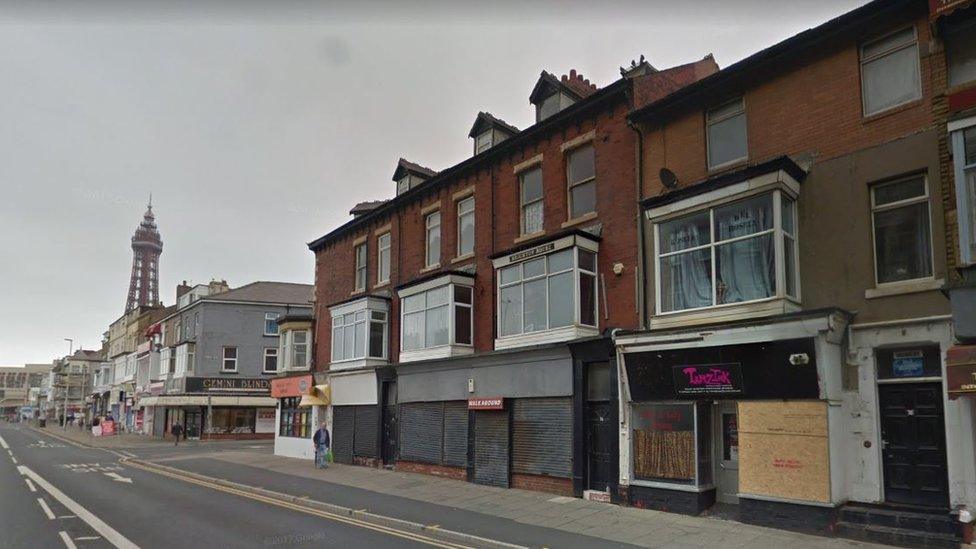Coronavirus: Middlesbrough inhabitants most 'at risk' of dying
- Published
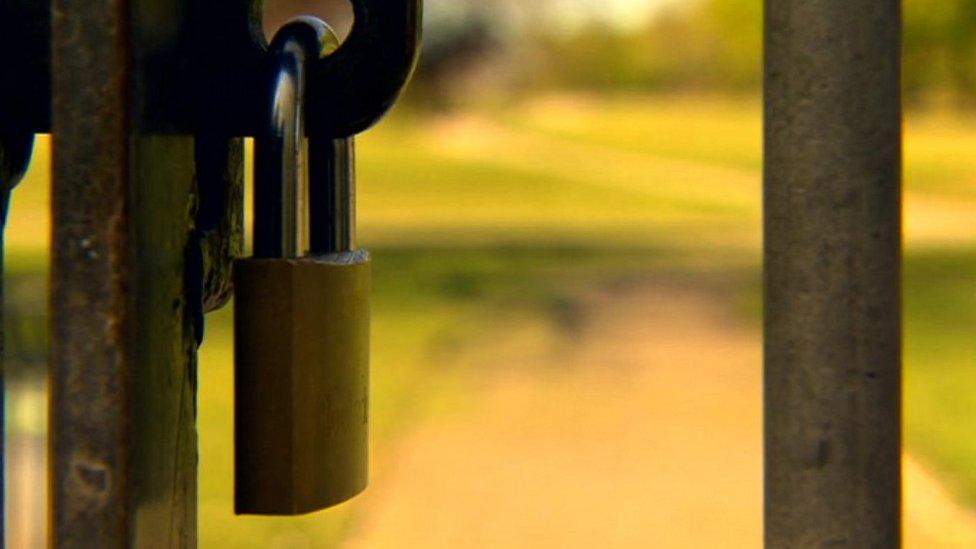
Parks in Middlesbrough remain closed
The Mayor of Middlesbrough recently ordered all of the town's parks stay closed, in defiance of the government which wants to keep them open. Andy Preston said people in the town were the most at risk in the country of dying from Covid-19. But why is this?
Dr Paul Williams lost his seat as a Labour MP in last year's general election and returned to work for the NHS on Teesside.
He believes Middlesbrough's poverty - it is the poorest council borough in England - is one of the main factors making people more vulnerable to Covid-19.
"There is a clear link between poverty and Covid-19," he said.
"First off it's harder for the poor to social distance because they live in more crowded houses, and many are surviving hand to mouth.
"Covid-19 is following a very familiar pattern of health inequality.
"In Middlesbrough and similar areas we have low life expectancies, a lot of young people who have cancer, or who have breathing or heart problems and those people are most likely to be affected by coronavirus.
"This crisis requires not just an NHS response, but a political and economic response as well."
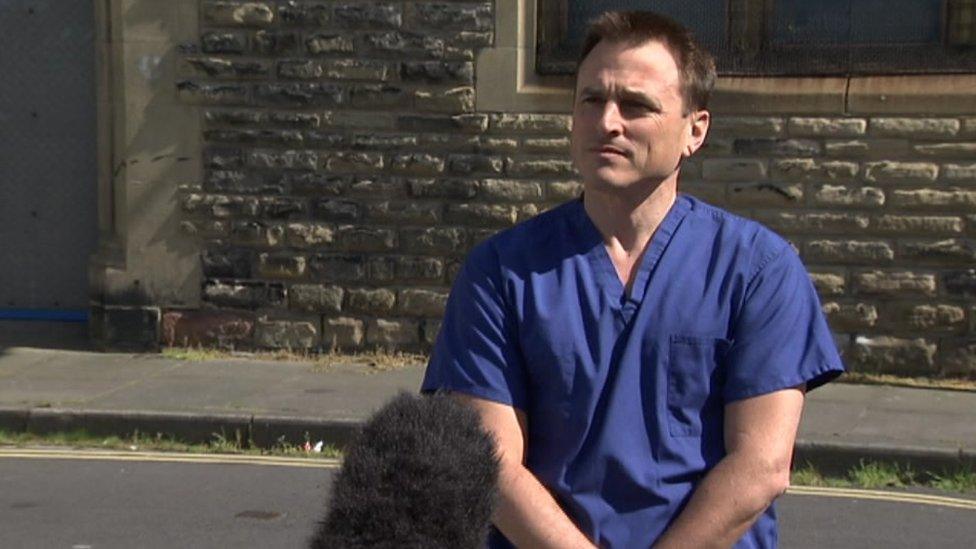
Teesside doctor Paul Williams said poverty played an important role in the impact of Covid-19
In most of England people can expect to live healthily well into their 70s but in parts of Middlesbrough a person's health can begin to fail at the age of 47, according to the Office for National Statistics.
The town has yet to recover from the the loss of heavy industry in the 1980s which led to high unemployment and poverty.
It is estimated 40% of children in Middlesbrough live below the poverty line. Just over half of 16-year-olds pass five GCSEs, and at £24,000 a year before tax, annual incomes in the town are a quarter lower than the national average.
Many of Middlesbrough's 140,000 residents still live in back-to-back terrace housing, meaning outdoor spaces like the town's three parks are important to some people.
With 290 confirmed cases of Covid-19 per 100,000 people, Middlesbrough has one of the highest rates of infection in the country.
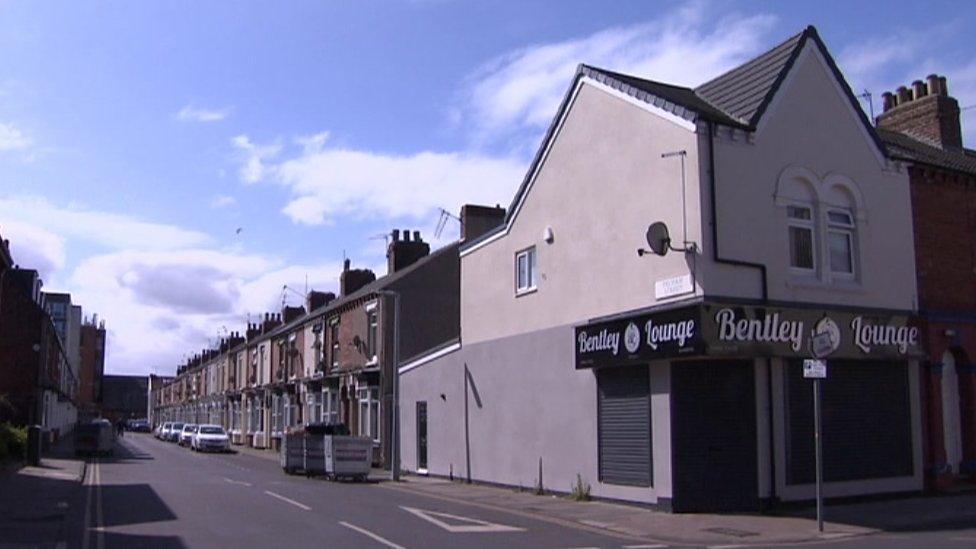
The areas around Middlesbrough town centre have some of the highest poverty levels in England
In total as of 21 April, there had been 407 confirmed cases of coronavirus in Middlesbrough, while the town's hospital had recorded 141 deaths.
As these are only confirmed cases through testing the true figure is expected to be significantly higher, and the number of deaths does not include people who have died in care homes or elsewhere in the community.
A report published by the Centre For Progressive Policy (CPP), external on 14 April claims people living in the poorest towns in the North of England and the Midlands are the most at risk of dying from coronavirus.
The CPP has created a "risk index" which claims people in Middlesbrough have the highest chance of dying from the disease.
"London has seen the highest number of cases of Covid-19 but what our work shows is that people living in some of the poorest parts of the country could potentially face the biggest risks," said Ben Franklin, lead researcher for the CPP.
The think tank, which is funded by Lord David Sainsbury, has analysed data for the number of coronavirus cases and deaths in each upper tier local authority in England.
These figures have been combined with data about life expectancies and the ratings produced by the Care Quality Commission for local social care providers.
"The number of Covid-19 cases makes up only 25% of the risk score that we've given each area," said Mr Franklin.
"The other 75% looks at the local public health resilience, how long someone could expect to live healthily in normal times, and the quality of care they are going to receive.
"Everyone has been following the number of coronavirus cases in each area but that is only part of the story."
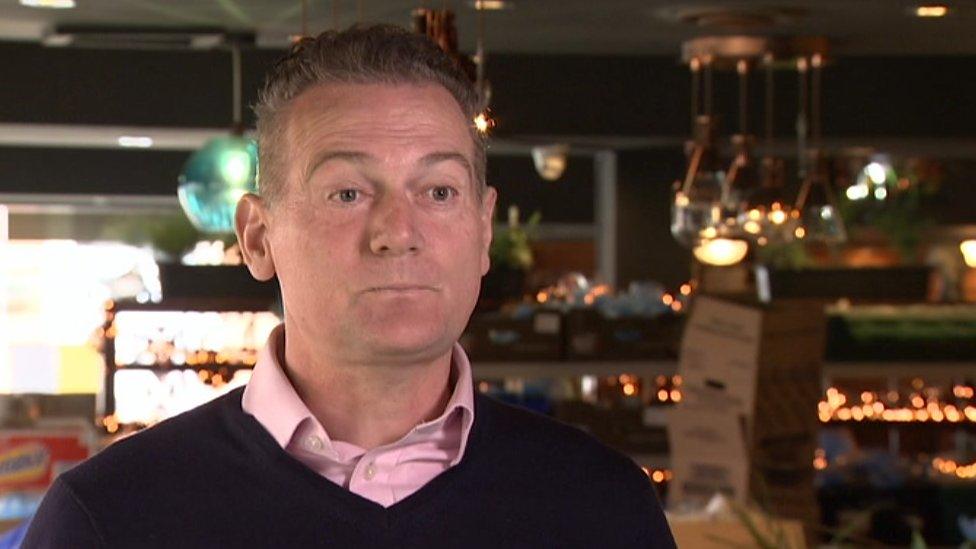
Mayor Andy Preston have called on the government to provide more emergency money
It is this report that Mr Preston, the town's mayor, cites behind his reason to keep the parks closed.
Last weekend the government told councils that all parks must remain open in order to "protect the health of the nation". But Mr Preston remains defiant.
"When it comes to Middlesbrough I know better than the government," he said.
"When the parks were open we saw people wrestling and messing about in them.
"Middlesbrough has a fragile economy, and we are the town most at risk when it comes to Covid-19."

Mr Preston has also raised concerns about not having enough money to protect the most vulnerable people in the town.
From a town centre, restaurant food boxes are being packed seven days a week and sent to people who cannot afford to buy food or are having to self-isolate.
"Every day we're sending out over 100 emergency food parcels to some of the most vulnerable people in the country, but I want to protect more people and we need to do more," Mr Preston said.
"We've received £5m in emergency funding and we've been promised more money which I'm pleased about, but I've made it clear to the government we need a lot more."
Councils across England have received in total £3.2bn in emergency coronavirus funding from central government in recent weeks.
Local government minister Simon Clarke and MP for Middlesbrough South and East Cleveland said the government would be channelling extra money towards those areas most in need during the public health crisis.
"The government recognises there is huge pressure on local government at a time when it's on the frontline of leading the response to the coronavirus," he said.

ENDGAME: When will life get back to normal?
EASY STEPS: What can I do?
A SIMPLE GUIDE: What are the symptoms?
MAPS AND CHARTS: Visual guide to the outbreak
VIDEO: The 20-second hand wash

- Published19 April 2020
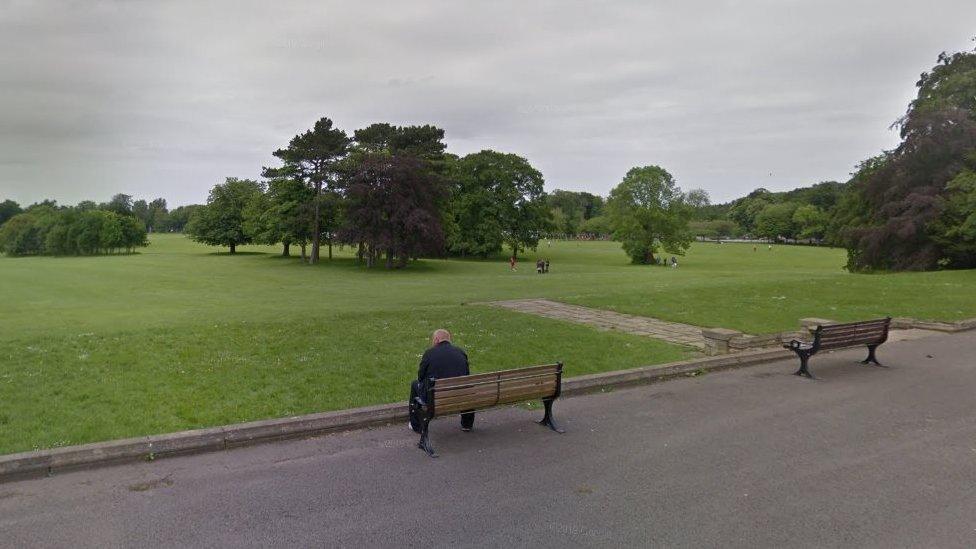
- Published18 April 2020
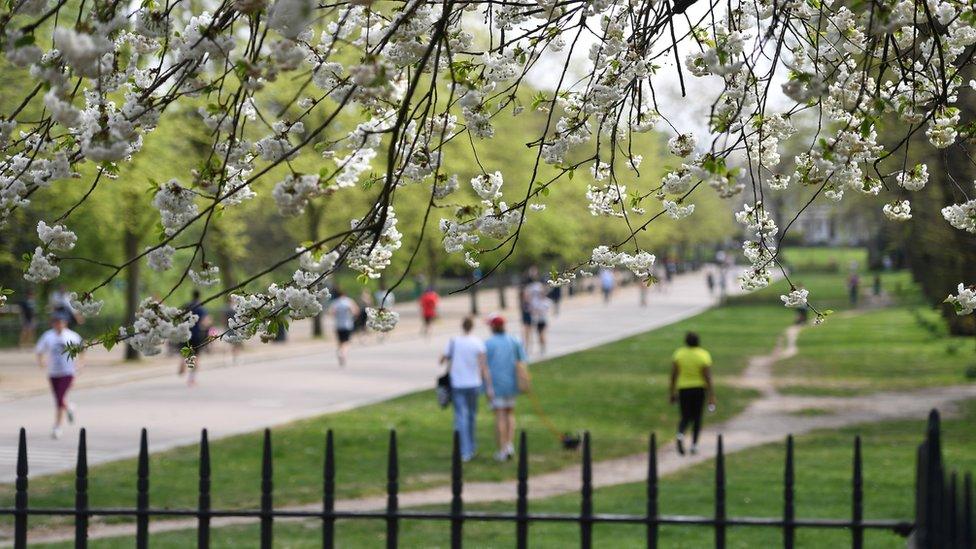
- Published18 April 2020
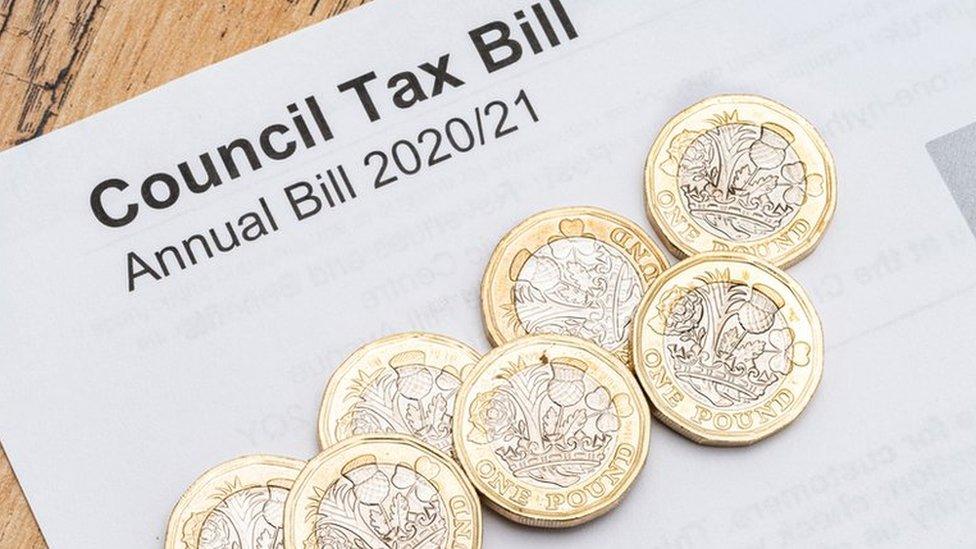
- Published13 April 2020
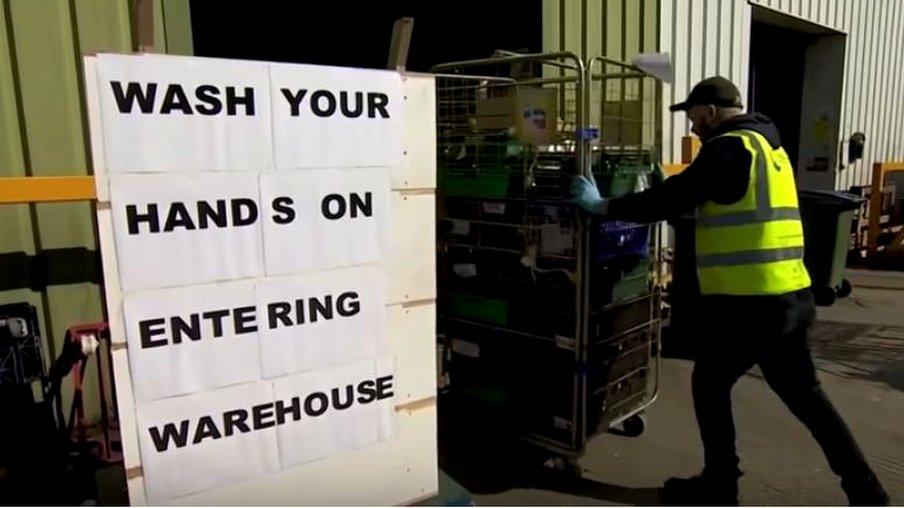
- Published26 September 2019
